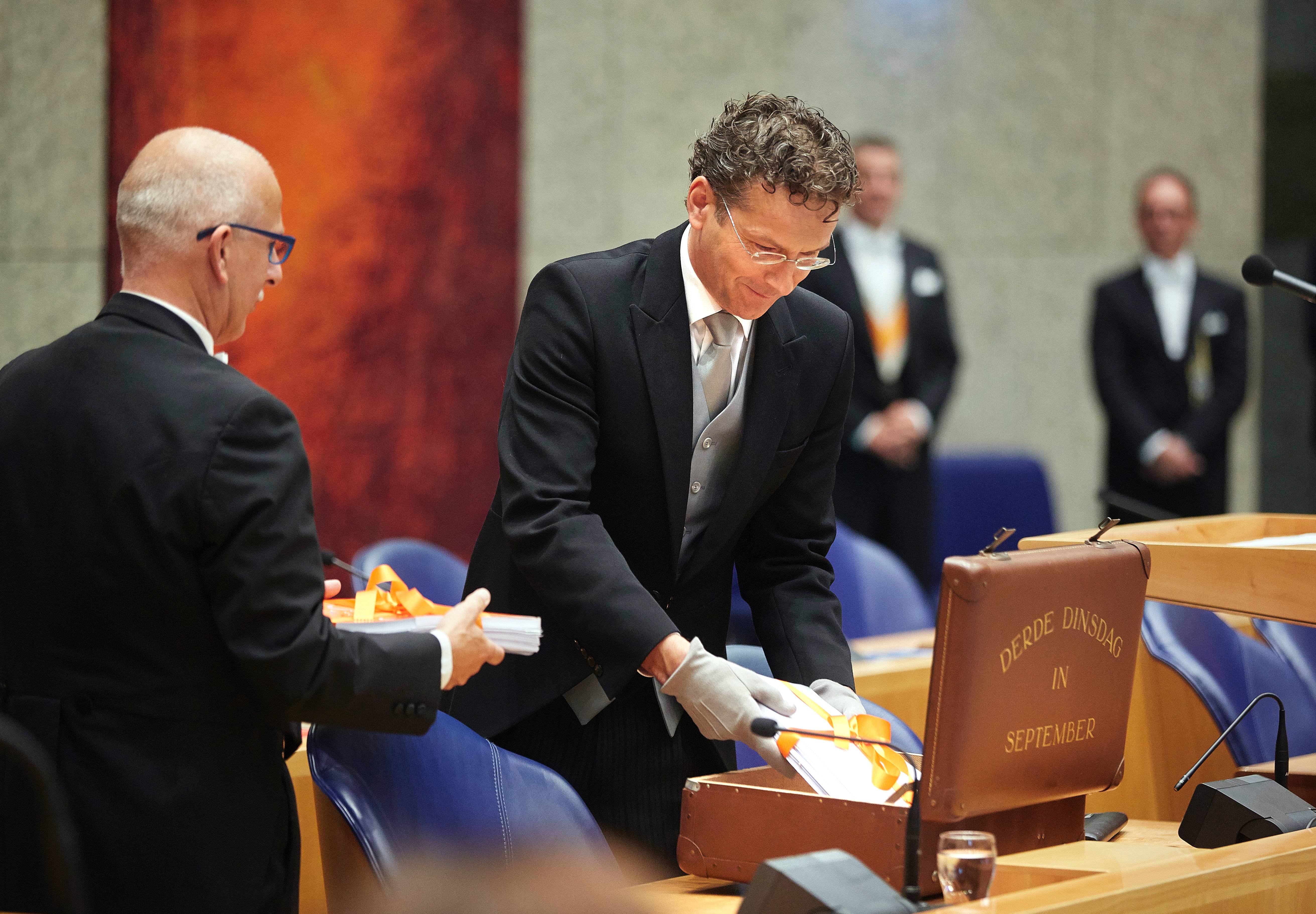Dutch economy is in a ‘crucial phase’, says finance minister
 The Dutch economy is now growing more quickly than expected, finance minister Jeroen Dijsselbloem told parliament on Tuesday, as he handed the government’s 2016 spending plans to MPs.
The Dutch economy is now growing more quickly than expected, finance minister Jeroen Dijsselbloem told parliament on Tuesday, as he handed the government’s 2016 spending plans to MPs.
‘The Netherlands has wrestled itself out of the crisis,’ Dijsselbloem said. It has been a difficult period, the minister said. ‘The recovery has expanded from exports to consumer spending and “pay rise” has now outstripped “redundancy pay” as an internet search term,’ the minister said.
Dijsselbloem outlined the government’s broad plans to boost spending on nursing homes, on defence and on childcare and to cut the second and third tax bands.
Nevertheless, there are still too many people at home not working, the minister said. The tax cuts will boost job creation, he said. ‘We cannot be content with average growth of just 1.5%,’ the minister told MPs.
‘We are at the crucial phase of implementing the reforms which have been put in place,’ Dijsselbloem said.
Read Dijsselbloem’s speech (official translation in English)
After several successive budgets in which ministry spending was slashed to bring the government’s finances under control, this year there is some room for extra outgoings. These are the main points which have already been leaked.
Government finances
- 2% economic growth in 2015, 2.4% in 2016
- Budget deficit to hit 2.2% this year, 1.5% in 2016
- National debt to shrink to 66.2%
Personal finances
- €5bn to fund tax cuts which the government hopes will create 35,000 jobs
- Tax on mineral water and fruit juice to raise €30m
- Childcare subsidies to rise, costing €290m a year
- €60m to ensure all toddlers have a few hours in daycare a week
- Paternity leave to be increased from two to five days
- Spending power to rise by an average 1.4%, no boost for those on minimum incomes
- Asset tax to be overhauled and increased for those with over €100,000.
- Cuts in housing benefit to be delayed
Welfare and health
- €100m for local councils to realise sheltered work schemes
- €1,000 per year per nursing home patient to be spent on one-to-one contact
- €210m to improve nursing home care, boost staff numbers
- €20m to compensate carers hit by the personal care budget problems
Other
- €150m for research and start-ups
- €220m more for defence spending, rising to €345m by 2020
- €649m for refugee settlement of which €110m for camps abroad
- €3m has been earmarked for tackling organised crime in the south of the country
- The king to get a pay rise of €43,000, his mother €24,000 and wife Máxima €17,000. The increase is due to their salaries being linked to civil service pay.
Thank you for donating to DutchNews.nl.
We could not provide the Dutch News service, and keep it free of charge, without the generous support of our readers. Your donations allow us to report on issues you tell us matter, and provide you with a summary of the most important Dutch news each day.
Make a donation